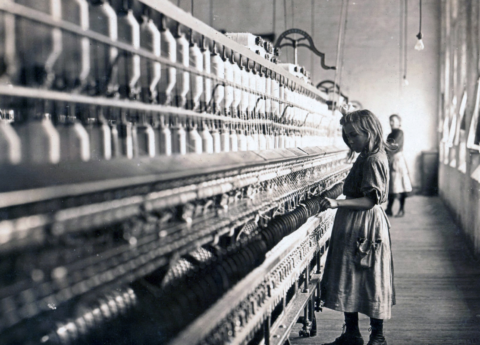The longest economic recovery on record and a state unemployment rate of 4.3% sounds like a strong foundation for Kentuckians’ prosperity. But a close look at the numbers this Labor Day shows an economy where many Kentucky communities still lack jobs, especially quality jobs families need to thrive.
When you take into account the many still-sidelined workers the official unemployment rate doesn’t count, Kentucky is still 20,100 jobs short of pre-Great Recession employment levels. Where you live and the color of your skin makes a big difference in whether jobs are available. While more people are employed than before the recession in the central and northern regions of the state, eastern Kentucky and other rural areas are still dealing with huge job losses. In Harlan County, for instance, 37% fewer people are employed than a decade ago. Black Kentuckians facing systemic barriers to employment and discrimination are nearly twice as likely to be unemployed as white Kentuckians.
Having a job – or maybe even two – isn’t necessarily a safeguard. Once inflation is accounted for (a dollar doesn’t buy what it did 20 years ago) typical Kentuckians are making the same wages they did in 2001. Year-round, full-time work at today’s median wage of $17.09 amounts to about $13,000 less than a single parent with one child would need to meet a basic family budget; and half of Kentuckians make less. For every dollar white Kentuckians make, black Kentuckians make 81 cents and Hispanic Kentuckians make just 65 cents. Women make 86 cents for every dollar men make.
Too often, policy choices have made matters worse. Kentucky’s failure to raise the minimum wage, unlike the majority of other states, and Congress’ unwillingness to act on the issue sets a new record for how long we’ve held the wage floor down. More than 1 in 3 Kentuckians, especially people of color and women, would see their paychecks go up from a gradual increase in our state minimum wage to $15.
Other harmful choices include the passage of “right-to-work” in 2017. This policy was promised to boost manufacturing, but factory jobs have grown more slowly in Kentucky since its passage. Lawmakers have also lowered wages in the construction industry; made it easy to classify low-wage workers as independent contractors, leaving them without many labor protections; made it harder for employees injured on the job including in coal mines to get Workers’ Compensation; prohibited workers from taking franchisors to court for wage and hour violations; and undermined public employees’ retirement security.
There have been a couple of bright spots: In 2019, legislators passed an important new law that extends temporary accommodations like light duty or extra bathroom breaks to pregnant and new moms on the job. They also enacted legislation that expands felony expungement, helping remove barriers to employment for people who have served their time.
Despite these advances, the reality faced by workers is far from ideal. Overstating the strength of Kentucky’s economy ignores the challenges people face. Worse, there is a temptation to make too much of a low unemployment rate and cast blame on and even penalize Kentuckians if they are not currently and adequately employed. The state’s slightly declining labor force participation rate – in line with the national downward trend and largely the result of an aging baby boomer population – is similarly misused to garner support for pushing people off programs that help make ends meet.
For example, since February of 2018, the state has voluntarily allowed SNAP (food assistance) time limit waivers to expire across the commonwealth, even in regions where there are more people in need of work than available jobs. As a result, more than 21,000 Kentuckians have lost help buying groceries, some of them working but still unable to meet strict work-reporting requirements. Similarly, the misnamed “Kentucky HEALTH” Medicaid Waiver – blocked for the second time by a federal court – would knock more than 100,000 Kentuckians off Medicaid for failing to meet work-reporting requirements.
This Labor Day, forecasters are pointing to worrying signs about the U.S. economy. Even if we avoid a recession for now, we are still faced with the fact that even after the longest recovery on the books, workers are still not benefitting like they should. For that to happen, we need policies aimed at creating jobs where they are most needed, removing barriers to employment, improving pay equity and strengthening, and not weakening, Kentuckians’ economic security.
This column was published in the Richmond Register on Aug. 29, 2019, the Courier Journal and Herald-Leader on Aug. 30, 2019, the Northern Kentucky Tribune on Sept. 1, 2019 and the Daily Independent on Sept. 2, 2019.



